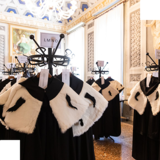The programme in a nutshell
The encounter between humanistic and managerial culture
The interdisciplinary approach is the specificity of this programme: the disciplines related to the history and art criticism - taught by professors from the Faculty of Arts and Philosophy - are complemented by economic-business and legal subjects (with a focus on the specific legislation of the cultural heritage sector).
Teaching methodology
Professors from the humanities alternate with professors from the Faculty of Economics: two different approaches, but a similar organisation. The method of lectures will be enriched by seminars and meetings organised specifically for this programme.
What next? Management skills in the service of heritage
The multidisciplinary training enables graduates to work with managerial and project skills as officials, consultants or entrepreneurs in the field of organisations, bodies and foundations active in the cultural heritage and entertainment sector.
Overview
The inter-faculty undergraduate programme in Economics and Management of Cultural and Performing Arts, which is part of the Faculty of Economics and the Faculty of Arts and Philosophy, is designed to meet the growing need in Italy for professionals capable of managing artistic and cultural heritage by combining managerial skills with a solid and broad humanistic culture. Thanks to the inter-faculty structure, professors from the economic area work alongside professors/lecturers from the humanities in a study programme that guarantees a high cultural profile in the fields of history and artistic, musical and theatrical criticism, teaching in the main economic and business disciplines and basic knowledge of private and commercial law and sector-specific legislation. The aim of the undergraduate programme in Economics and Management of Cultural Heritage and Entertainment is to train a professional figure able to operate in the fields of art and culture with managerial, planning and entrepreneurial skills, having a qualified basic training in the disciplines of art history, theatre, music, cinema together with strong theoretical and practical skills in the field of economics and management (operational, commercial, organisational and financial) of companies in the cultural sector; effectively use the English language, also in the specific field of competence, and a second language of the European Union for the exchange of general information; use IT skills for the use of data processing systems





